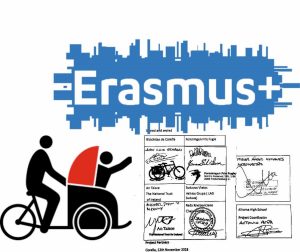By Damien O’Tuama
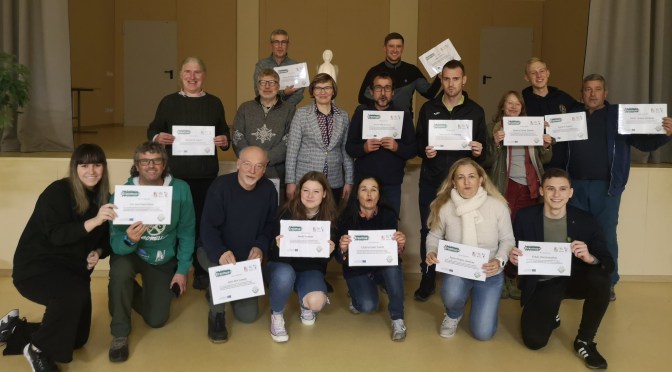
After a hiatus of almost two years, the Erasmus+ project that Cyclist.ie is part of through our partnership with An Taisce Green Schools, recommenced with a training and learning tour of Lithuania in the middle of November. In this article, Dr. Damien Ó Tuama, National Cycling Coordinator with Cyclist.ie and An Taisce, reflects on the visit and on reconnecting with a wonderful team of advocates from the four participating countries.
The Erasmus+ Project
For those less familiar with it, Erasmus+ is the EU’s programme to support education, training, youth and sport in Europe. The programme places a strong focus on social inclusion, the green and digital transitions, and promoting young people’s participation in democratic life. You can find out more about Erasmus+ here.
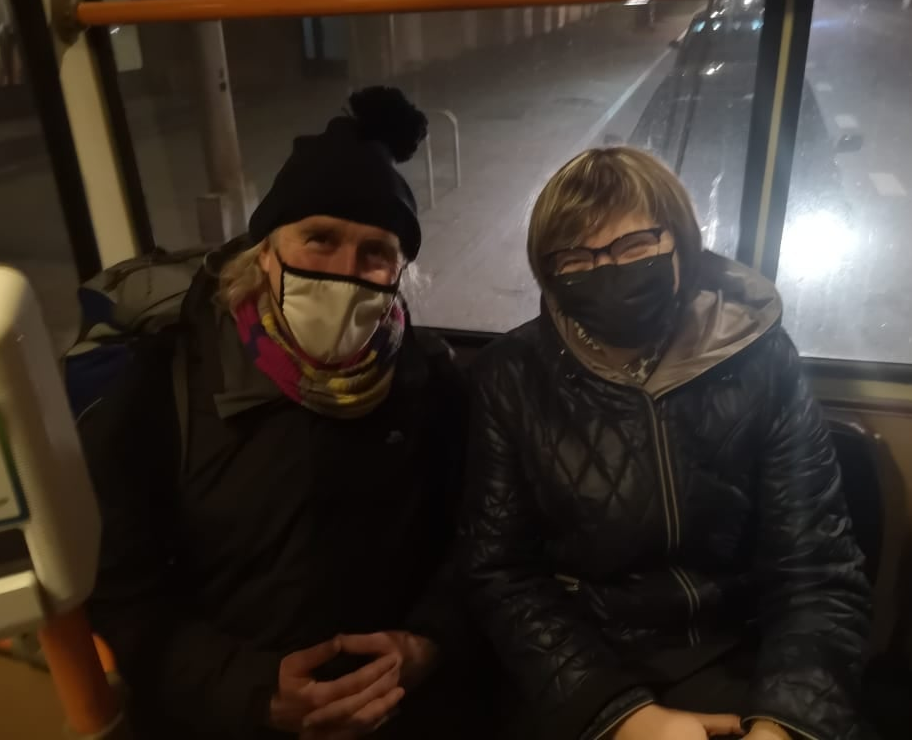
This particular Erasmus+ project, entitled “Sustainable Mobility, Sustainable Community”, combined themes of social inclusion, intergenerational relationships, community building and sustainable mobility. The partners comprised organisations from Ireland, Denmark, Lithuania and Spain (the lead partners). You can read more on the background to the project on a Cyclist.ie web article from April 2019 covering the first of the four exchanges visits (the lovely training and learning visit to Corella in Spain), and you also can check out the overarching blog for the project here.
The learning and training visit to Lithuania had an action-packed and diverse schedule of outdoor and indoor events, with a lot of thought and preparation going into the programme. Huge credit must go to our principal contact in Lithuania, Reda Kneizeviciene, for curating the multi-day programme.
I highlight below some of the most memorable aspects of the visit to Lithuania, but note that it is certainly not exhaustive in terms of covering all of the events we took part in. Overall, we had three very full days of activities plus some extra events on our arrival and departure days.
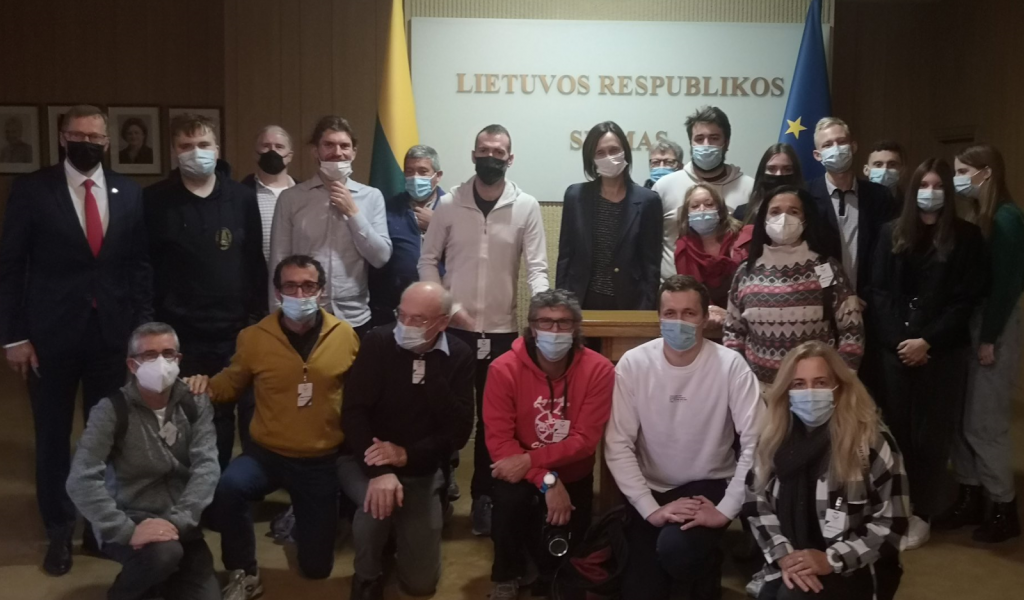
Arrival Day – Tue 16 Nov
After visiting friends in Warsaw, I travelled overland from the Polish capital to Vilnius, the capital city of Lithuania. The bus trip took around 10 hours, and I received a lovely welcome at Vilnius bus station from Reda Kneizevičienė, the lead on the Lithuanian team, along with her son Jonas and nephew. Similarly, the partners from Spain and Denmark were met at the airport with warm welcomes before our reunion in the local hotel.
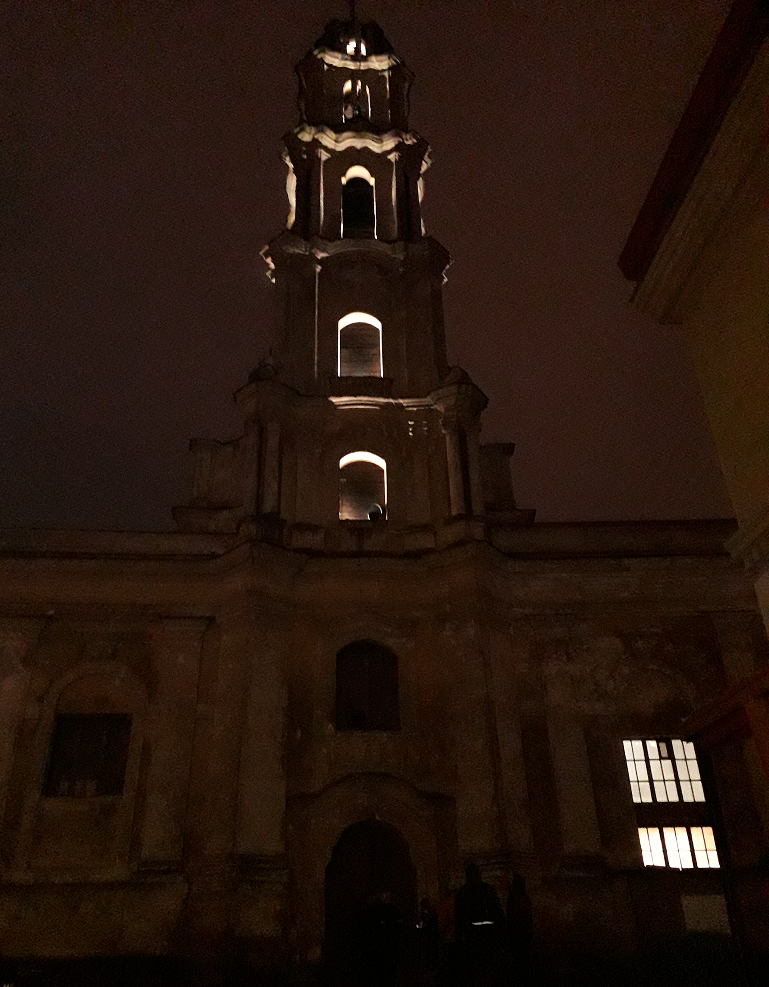
Full Day #1 – Wed 17 Nov
One of the undoubted highlights of our trip was our visit to the Seimas, the Parliament of Lithuania. We were treated to a full guided tour of the building, including the old and new parliamentary chambers, before the conference commenced.
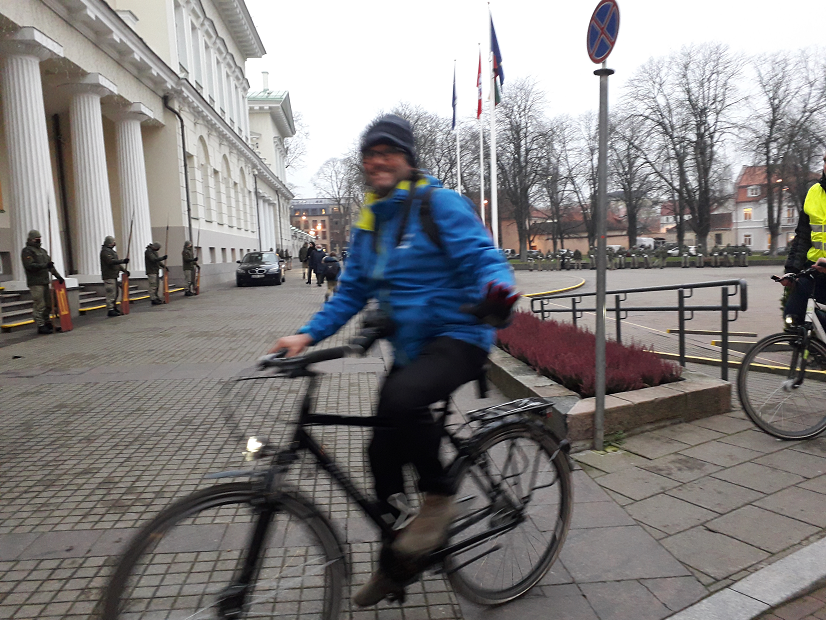
The title of the conference was “Examples of sustainable development in volunteering activities: when both the environment and the public benefit” and it was opened by Mr. Simonas Gentvilas, Minister of the Environment in the Lithuanian government. We were also lucky enough to meet the Speaker of the House, Viktorija Čmilytė-Nielsen, who is herself former twice world chess champion.
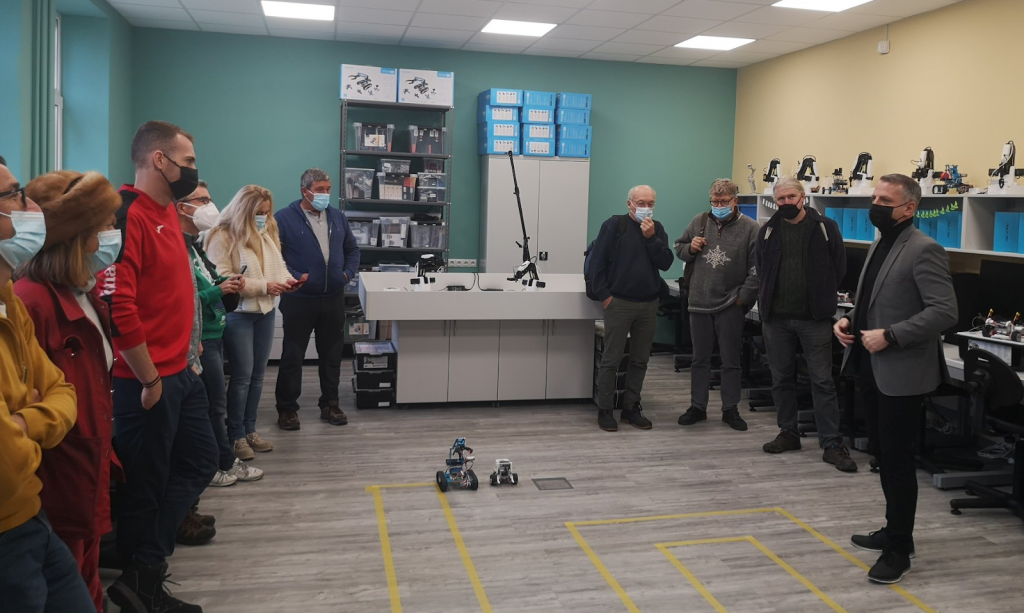
There were informed presentations given by representatives of each of the project partners, in addition to ones delivered by reps from the Transport Ministry, the City of Vilnius and the Lithuanian Cycling Community (itself a member group of the European Cyclists’ Federation – see here). The full programme for the conference can be read here and the YouTube video capturing all of the recorded presentations can be viewed here (with Damien’s presentation commencing at 2h 10min).
The formalities of the conference were followed by a much more informal – and ever so slightly bitterly cold – evening time bike tour of Vilnius. Lovely to see the old and new parts of the city, with an entertaining and knowledgeable tour guide. Very enjoyable indeed. Some pics from the trip are below. They include an image of a plaque on Paupio street within “The Republic of Užupis” in Vilnius – one of 25 plaques in different languages showing the Constitution of the district of Užupis.
The first 10 articles of the Constitution of the Republic of Užupis read as follows (see here for them all):
- Everyone has the right to live by the River Vilnelė, and the River Vilnelė has the right to flow by everyone.
- Everyone has the right to hot water, heating in winter and a tiled roof.
- Everyone has the right to die, but this is not an obligation.
- Everyone has the right to make mistakes.
- Everyone has the right to be unique.
- Everyone has the right to love.
- Everyone has the right not to be loved, but not necessarily.
- Everyone has the right to be undistinguished and unknown.
- Everyone has the right to idle.
- Everyone has the right to love and take care of the cat.
Following the bike tour, we had dinner in the lovely Socialinis Restoranas “Pirmas blynas” restaurant which is located in the basement of a church. It was set up by a Dutch chap (pictured below) with a culinary and social mission to employ people with intellectual disabilities. Fab food and atmosphere there and a terrific enterprise overall.
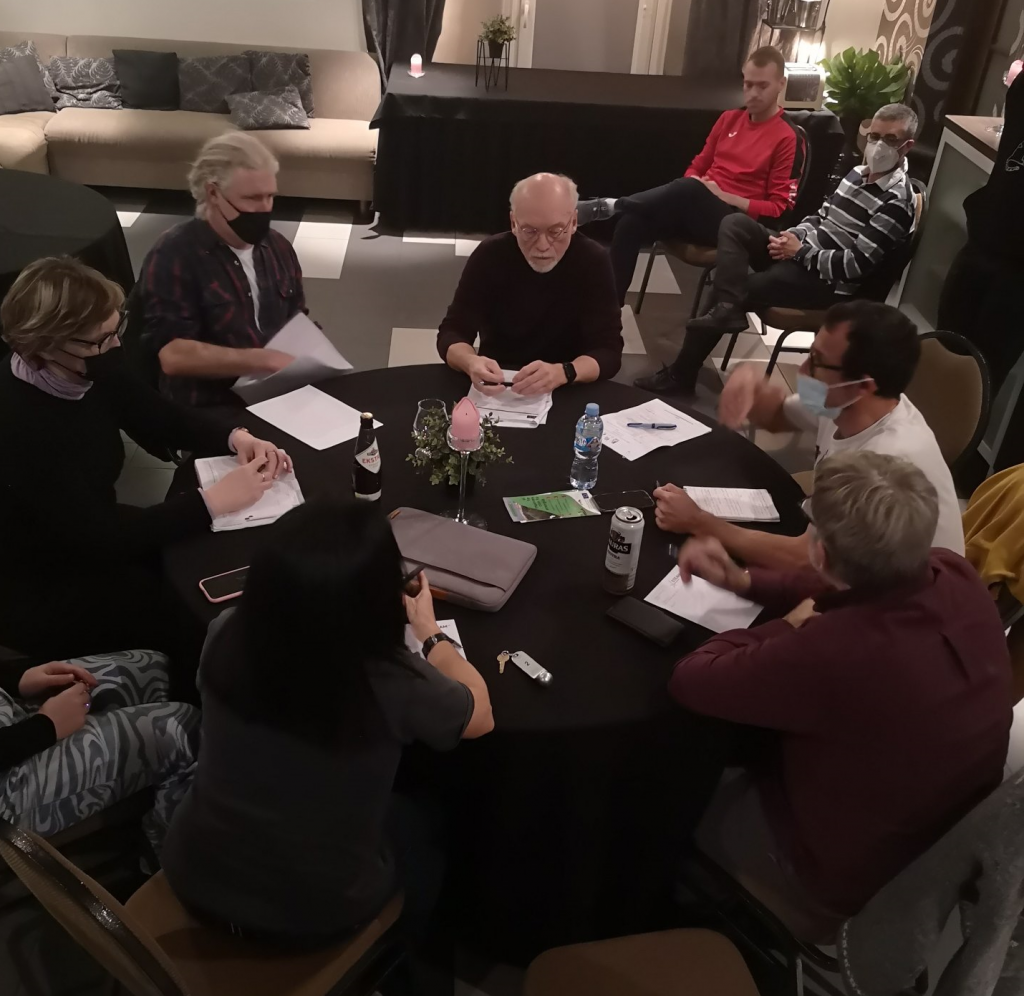
Our day finished with a bus journey to the Suvalkija region, stopping off en route for a night-time visit to the stunning Trakai Island Castle.
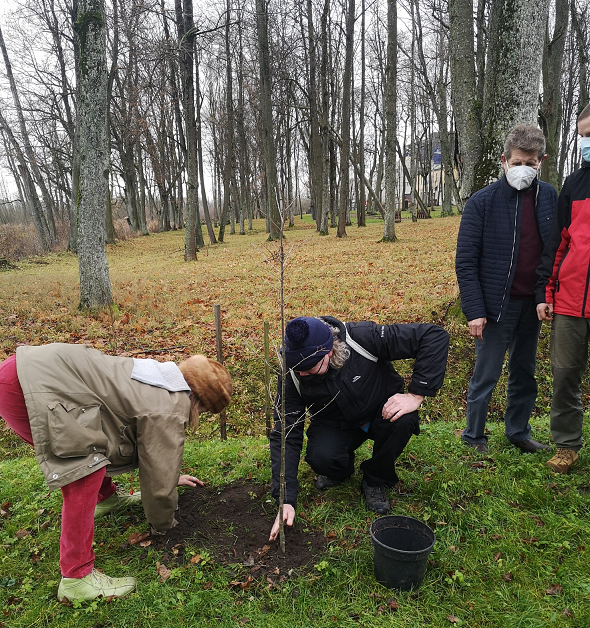
Day #2 – Thursday 18 Nov
Our second full day in Lithuania was another action-packed one, with trips to a transport and technology museum, the Marijampolé Technical College, the school attended by the Lithuanian pupils taking part in the Erasmus+ project, a “Bunny Museum” and then, finally, a meeting in the hotel to review the 3 year project as a whole. The pictures below will illustrate some of these visits and meetings.
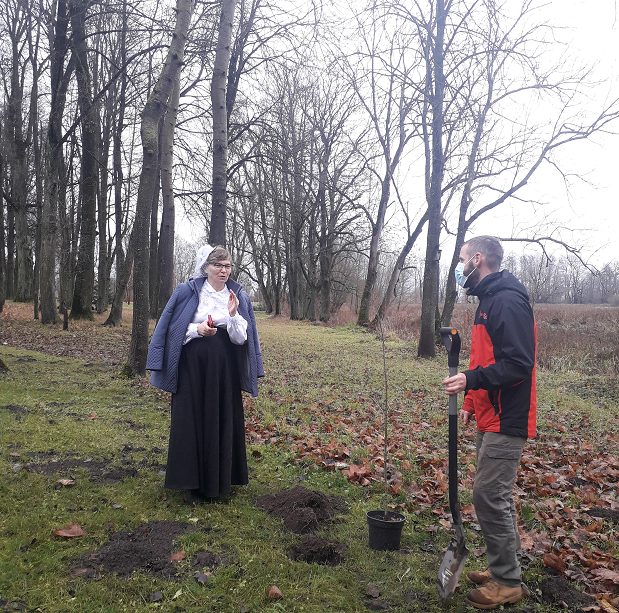
Day #3 – Friday 19 Nov
Our third and final full day was spent in the more rural parts of the Suvalkija region and it commenced with a visit to a local community centre and a tree planting session in the Antavanas Historical Park.
We planted one oak tree for each of the partner countries – Ireland, Denmark, Spain and Lithuania. The planting is symbolically important to mark the Erasmus+ project itself and our learning and training visit to the country, but also as a part off-setting for the carbon cost associated with the groups travelling (by air) to Lithuania.
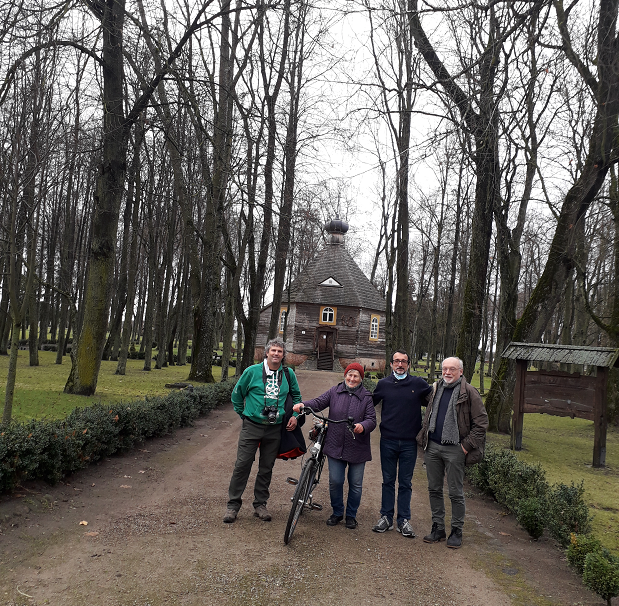
Our Lithuanian partners, LAG Suduva, have recently created a trail in the forest in the region – and next up was a visit there to check it out. It’s a 14-kilometer trail that will connect Kazlu Ruda with three more villages: Kadliskes, Jurés and Agurkiskes. For more information on this see here.
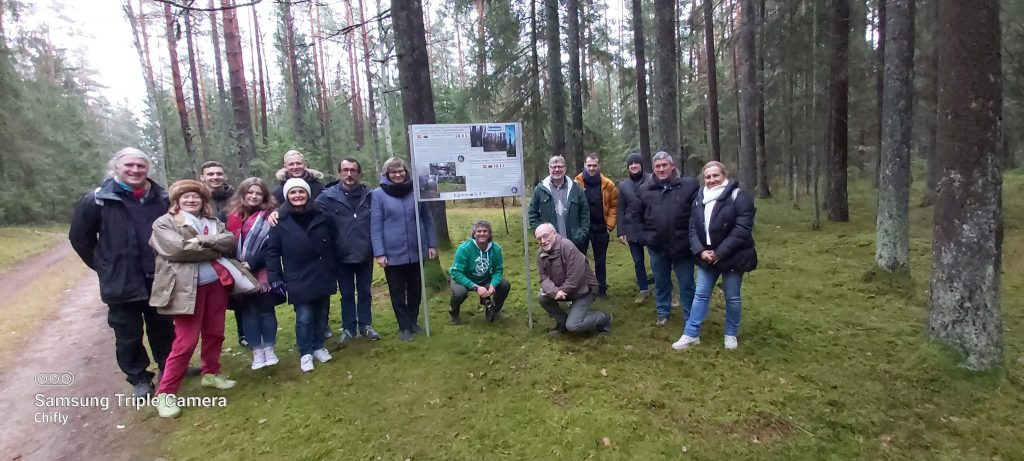
Perhaps the most fascinating visit on our trip was to the Kardokai Village Nature School, where the pupils themselves took our Erasmus+ group on a walking tour. The school itself has been developed over the last four or five years or so, and has pupils up to the mid-teens at the moment. The class rooms comprise various interesting wood and straw bale built buildings – as well as clearings in the forest – and with the curriculum very much ecologically focused and with an emphasis on developing practical food growing, building and other skills. This visit was of particular interest to the Danish and Spanish school teachers in the group.
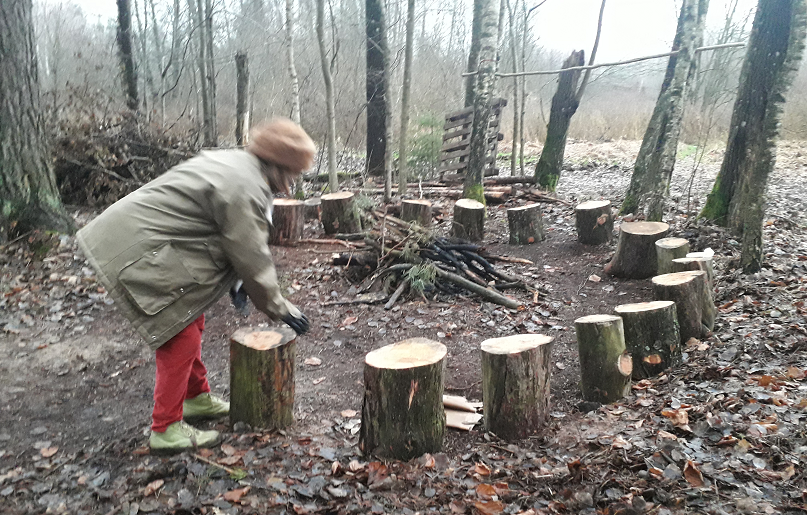
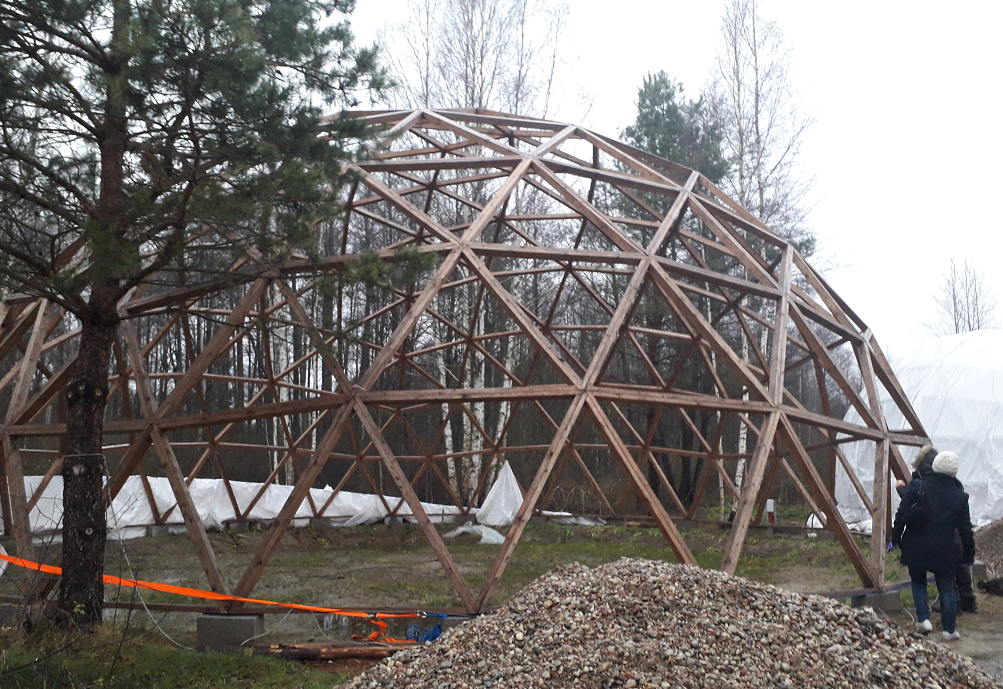
The final formal event of our trip was a traditional Lithuanian Folk evening – a session of dance, music, cooking and dining!
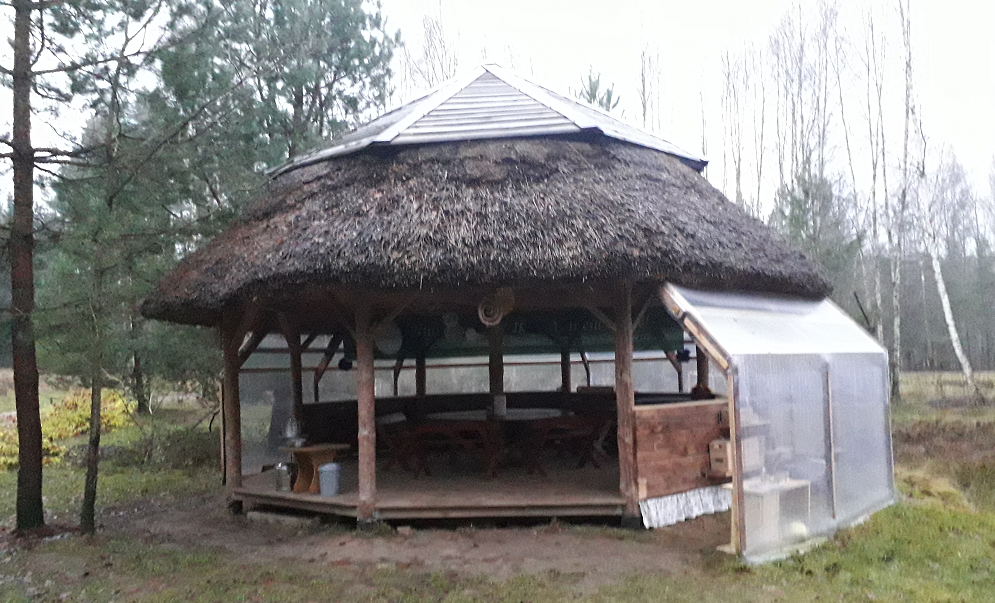
In Conclusion
This Erasmus+ learning and training tour, like the previous ones of the project, was a truly wonderful experience – action-packed with diverse activities each day, educational, sociable and very inclusive in every sense of the term.
I want to thank Reda Kneizeviciene once again for curating the whole programme under difficult Covid influenced circumstances – and also thank all of the other most hospitable Lithuanian hosts.
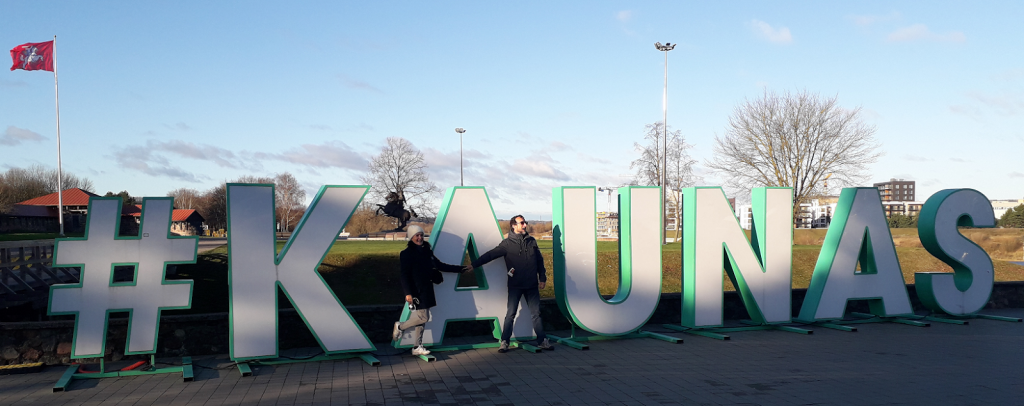
From a transport perspective, I was struck by the depth of car culture in Lithuania (and especially Vilnius) – similar to many other European countries including Ireland. There is still much to do to create the conditions to nurture a stronger everyday cycling culture in both urban and rural areas. It would be lovely though to revisit the country in the summertime to compare and contrast cycling numbers!
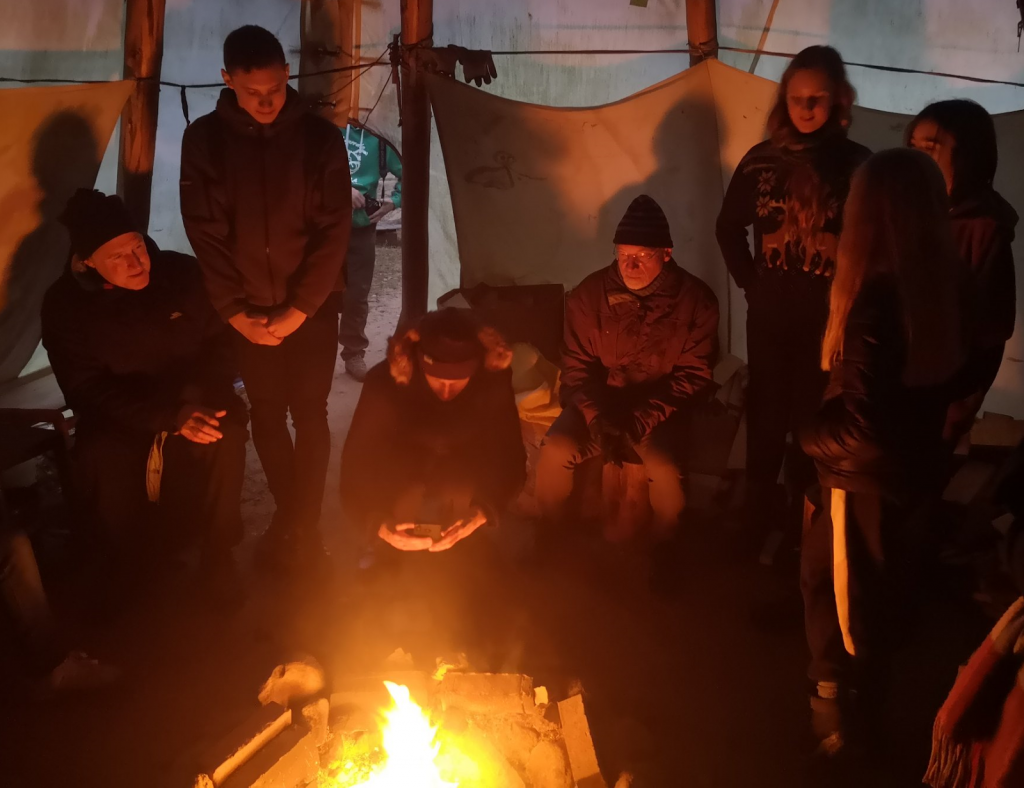
It was disappointing, of course, that pupils from Spain, Ireland and Denmark were not permitted to travel for this trip – they were certainly missed, especially by their Lithuanian counterparts – but very much understandable given the public health context.
From my own perspective, it was lovely to make friends and forge connections with brilliant activists and volunteers from all of the partner organisations – and I look forward to meeting them again in the not-so-distant future.
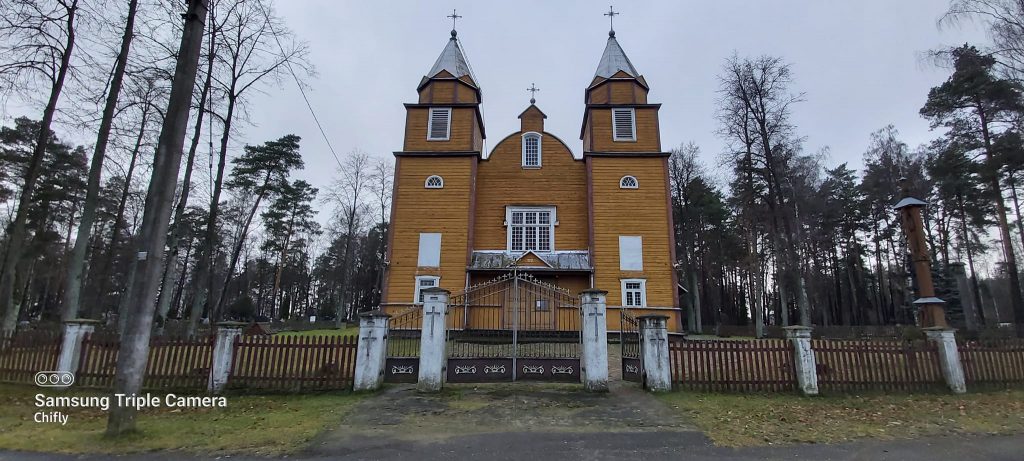
Cyclist.ie would certainly love to be involved in other sustainable mobility related Erasmus+ projects in the future, so please get in touch with damien.otuama@antaisce.org if you are interested in possible collaborations.
Finally, thanks again to those whose photographs I borrowed for this article – especially Reda Kneizeviciene and our chief official photographer Juan Luis (‘Chifly’) from Corella! Much appreciated indeed.
